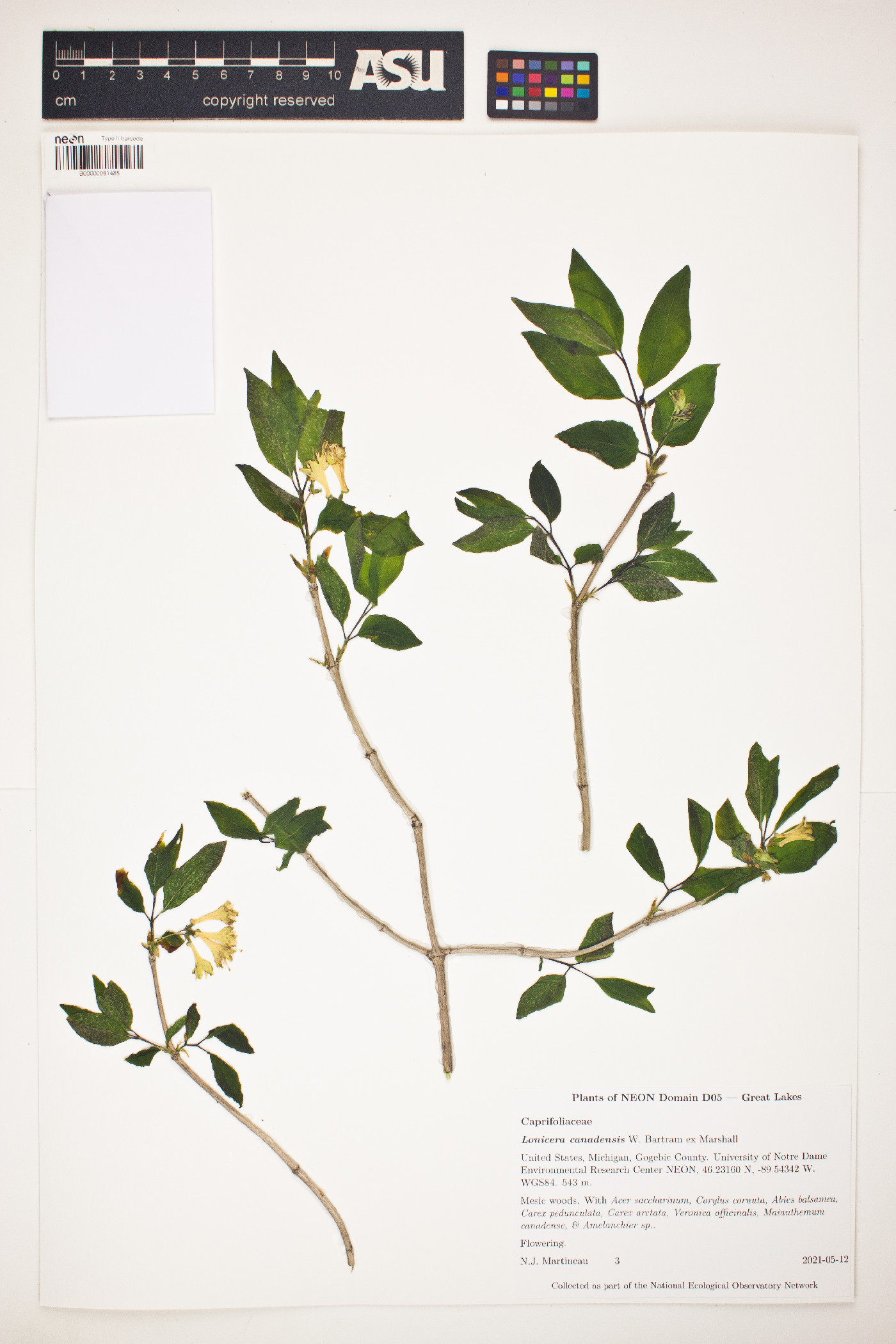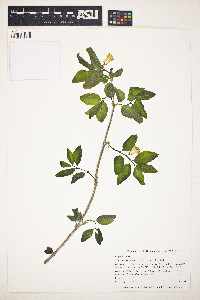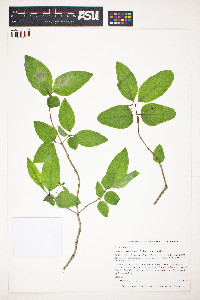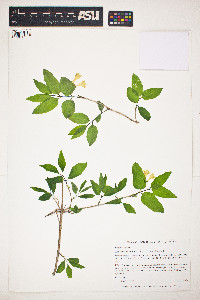Shrub to 2 m tall
Leaves: opposite, 3 - 12 cm long, triangular- egg-shaped to oblong with broadly tapering to rounded base and pointed or rounded tip, thin, fringed with hairs, sometimes sparsely hairy beneath.
Flowers: in pairs, borne on a 2 - 3 cm long axillary stalk, drooping. Bracts shorter to slightly longer than the ovaries, linear or awl-shaped. Calyx short, five-toothed. Corolla greenish yellow, 12 - 22 mm long, funnel-shaped, five-lobed. Stamens five. Ovaries separate, divergent.
Fruit: a few-seeded berry, in pairs, widely divergent, reddish orange.
Twigs: hairless.
Form: upright with straggling branches.
Similar species: Lonicera canadensis is the only Lonicera species with solid twigs and hairless stems and leaves.
Flowering: mid-April to early May
Habitat and ecology: In the Chicago Region known only from Berrien County, Michigan and LaPorte County, Indiana. It is locally frequent in mesic woods in Berrien County.
Occurence in the Chicago region: native
Etymology: Lonicera is named after Adam Lonicer (1528-1586), a German botanist and author. Canadensis means "of or from Canada and North America."
Author: The Morton Arboretum




